Jane Kirkpatrick
https://jkbooks.com/
Read the review of Across the Crying Sands
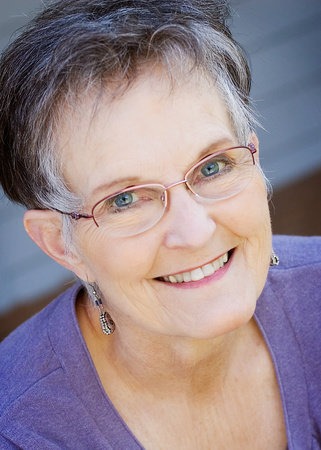 T4JYM: Can you share with our readers your newest book? What can they expect from it?
T4JYM: Can you share with our readers your newest book? What can they expect from it?
JK: My latest book is titled Across the Crying Sands. It’s set on the North Oregon Coast and is about a historical woman and her husband (Mary and John Gerritse) who lived an unconventional and adventurous life as she sought God’s purpose for her. You can expect horses, homesteading, fires and the sea as a catalyst for trouble and change.
T4JYM: How did you make the jump from working a full-time job to writing?
JK: I remained on my full-time job for years after my first book was published. My work was serving Native American families whose children had disabilities. I loved my job and in fact those families helped me with my first novel. I worked on the reservation 17 years while homesteading a ranch with my husband. Before that I was the director of a mental health clinic in Oregon but we “went to sea in a sieve” as the poet Edward Lear wrote, taking a risk and living at the end of 7 miles of dirt road – our address was 99997 Starvation Lane. I didn’t stop writing full time until I retired. (I’m old in body!).
T4JYM: You have a very impressive assortment of books published. Which books are your favorites and why?
JK: I always say “The one I’m working on now” is my favorite! My husband likes my first novel called A Sweetness to the Soul. The title is from the Proverb that says, “desire realized is sweet to the soul.” Every book had something to teach me. I think that’s one of the gifts of journaling or writing, even if no one else ever reads your work: God is in the work, and you’ll discover things about yourself you never knew you needed to know. For example, in the book my husband loves, I thought it was about a real couple and their life with their neighbors the Wasco Warm Springs and Paiute people, the tribes I worked for. But it was also about living with grief and disappointment (the woman’s three siblings died in one week of diphtheria and later in life, she was unable to have children). I couldn’t have children either, but I didn’t really deal with the loss of that until I wrote their story. With my current novel, Across the Crying Sands, I’m learning about family that is a word that comes from the Latin famalus, meaning servant and about finding one’s purpose in the midst of trials.
T4JYM: You have quite an impressive number of awards you have received listed on your website. What award(s) were the most meaningful to you?
JK: I think the Wrangler Award from the Western Heritage Center and National Cowboy Hall of Fame. It was for that same book my husband likes so much, A Sweetness to the Soul. The award meant a lot because writing the story had been a leap of faith, a commitment I’d made to tell the story. I had to silence what I call harpies who said things to me like “Who told you that you could write?” or “You’ve never written fiction. Bad choice!” But the story wouldn’t let me go so I set my alarm at 4:00 am and was committed to be at the computer by 5:00 am. I wrote for two hours before I went to work. I wrote almost all my books that way. I learned later that the word commitment comes from the second century and it was a banking term. It meant “to make a deposit against which you could later draw.” So, I committed to showing up trusting that God would be there to help me tell the story the best way I knew how. Later I read a poet, Von Goethe, who said that what people don’t realize is that once you make a commitment to something, then Providence moves and things begin to happen that you otherwise could never imagine. Remember Scully Sullenberger who landed the airplane in the Hudson a few years back? He said in an interview that every landing he’d made in his career was “a deposit for that one great withdrawal on that January day.” I think what that award said to me was that making the commitment is what matters, following the story. But it works for things like staying in school even when you hate that class or someone is bullying you or you feel discouraged. Each moment you stay focused on the goal, the purpose, the commitment, you are making that deposit that you’ll withdraw one day.
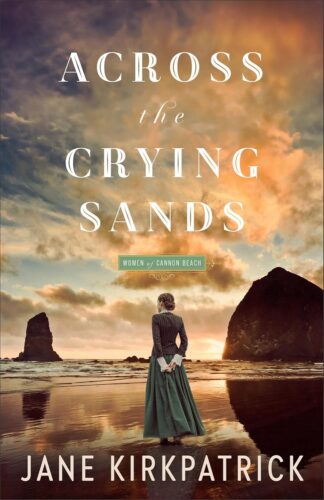 T4JYM: How many times have you faced rejection from a publisher? How do you respond when this happens?
T4JYM: How many times have you faced rejection from a publisher? How do you respond when this happens?
JK: More than once. It feels terrible like undressing in front of a window at night and someone else thought what they saw was so terrible that they pulled the shade down. This happened most often with my non-fiction writing for magazines and newspapers before I tried fiction. A writing instructor suggested that before sending a piece out (to a publisher or an agent etc.) to make a list of 10 potential markets. Date the day you send it out. When it comes back, read it once then within 24 hours, send it to the second name on that list. The rejection might have nothing to do with your writing but the calendar needs of the publisher etc. You can’t get anything published if it isn’t in the marketplace. I never reached the 10th market before my piece was purchased. Not because I was such a great writer but because I kept trying. It’s also good to tell oneself “A rejection doesn’t mean something was bad, just that it wasn’t a good match.” When I was the director of an agency, I sometimes had to fire people which was painful for both of us. I tried to make it easier by accepting some of the responsibility that we had made a poor match, that the person had good skills, just not for the position they’d been hired for. One former employee told me “You fired me and made me like it” because he went on to do a job he was much more suited for. I guess that’s turning lemons into lemonade. Also, if you should get a personal letter of rejection back, take it very seriously and respond with gratitude for the editor giving you suggestions. On several occasions that happened for me and I was able to either adapt the piece to be more toward the editor’s needs or send something at a later date that they did publish. It’s a way of saying you are a team member and are willing to work with a publisher.
T4JYM: Would you please share a short testimony of how you became a Christian?
JK: When I was five, television was new and programming limited to a few hours a day. My parents were dairy farmers and while they were out milking one evening a program called Crossroads came on, about people making choices in their lives. At the end was a kind of altar call. I remember putting my hand on the warm television and saying I wanted Jesus in my life. Then for the next 70+ years I struggled with belief and faith, went to church, didn’t go to church, attended Bible studies, disagreed with Bible studies, etc. etc. But I never lost the confidence that Jesus was love and that my purpose in life was most of all to reflect that love. I think God has been big enough to deal with my ups and downs and lead me to what I think of as “spacious Christianity: creating spaces of grace for hope, healing and purpose. That’s the mission of the Presbyterian church my husband and I attend in Bend, Oregon. Spacious Christianity invites all to flourish.
T4JYM: I love that you have storytelling tips and other information available on your website. How else do you try to pour into the next generation of writers?
JK: I’ve often served as a judge for writing events, especially teen writing events. Some of the best writing I’ve read has come from someone in high school, truly! I always write additional comments to encourage young writers. (Women Writing the West has a young writer contest. Schools often sponsor writing contests). Links at that WWW site lead to rubrics that offer descriptions of what characterization is or voice or plot or literary qualities. The rubrics tell a writer what is award-winning versus good but not great for several categories In the WILLA Literary Award Competition. I’ve taught writer classes on the rubrics because they are so good at helping new writers (and older ones like me!) be able to see how to improve their work. I’ve taught writing workshops and classes and several times we’ve had father daughter/mother/daughter attendees that brought both freshness and depth to the classes. I’ve spoken at fund-raisers for high schools and teen programs because those organizations/institutions are the hummus of our future growth as a nation, and I like to encourage young people. I always start conversations with teens when in line at Taco Bell or wherever so that young people will feel seen and know that others are interested in their opinions and lives.
T4JYM: What advice would you give to someone interested in publishing their work?
JK: 1) Be true to the story and not what you think the market is because by the time something is published, the market may well have changed.
2) Consider reading King and Browne’s book Self-editing for Fiction Writers if you are hoping to publish a novel and Roberts and Fitzgerald’s book Structuring your Novel.
3) Invest in your craft by choosing a conference near you that invites agents and editors so you can have ten minutes to pitch your story and take the advice of these professionals.
4) Keep writing while you are pitching your work.
5) Consider self-publishing. Follow successful independent writers or hybrid writers to see how they work, listen to their blogs.
6) Don’t tell yourself that attending workshops or listening to blogs about writing can replace actual reading and writing! You have to do the work, stay in the room.
7) Make the commitment…trust.
T4JYM: What advice would you give to the youth of this world?
JK: The poet, Rainer Maria Rilke, wrote in a letter to a young writer (1800s) these words, which I paraphrase. When we are born, God calls us by name and sends us out into the universe. We don’t remember this, but God walks beside us saying “You, sent out beyond your recall, go, to the limits of your longing. Embody me.’ I treasure these words that speak to listening to that inner voice. Believe and trust that you are not walking alone. Risk may be involved — going beyond our recall — but in the seeking of God’s purpose, responding to that spiritual longing, we embody God. We older ones are counting on your inventiveness, your creativity, your energy, your compassion, your faith that Jesus words ring true: Love the Lord your God with all your heart and soul and mind and love your neighbor as yourself. The world will know Jesus’s followers by our /your love.




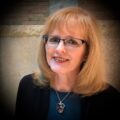

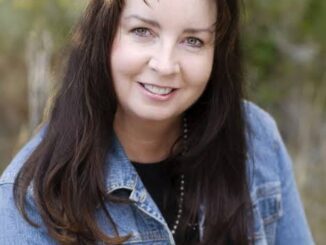
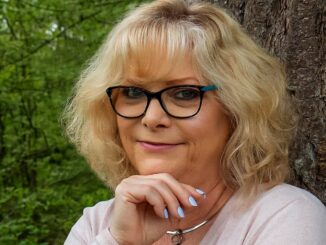
Be the first to comment